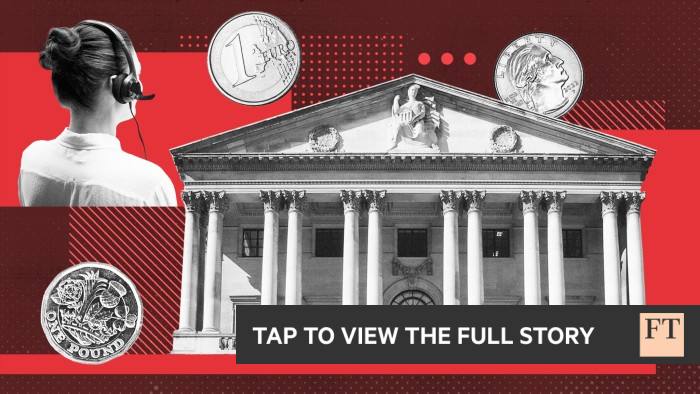Artificial intelligence presents a new avenue for revolutionizing the business landscape as finance has always been a sector that thrives on progress. Equipped with state-of-the-art systems, companies aim to explore novel operational methods and boost efficiency.
Application Scenarios: customer assistance, pricing strategies, cybersecurity, crime prevention
Peter Weston, the associate director for financial services at consultant Harvey Nash, notes, “AI is beginning to make an impact in various financial domains.” Notably, AI is increasingly employed as the primary support system for tasks in investment banking and cost management within the IT sector.
Moreover, insurers are leveraging technology for enhanced quote screening and pricing strategies. Hiscox, a UK-based insurer, introduced its AI framework last year in collaboration with Google, marking a pioneering advancement in the London insurance industry.
Weston emphasizes the significant time-saving benefits of AI in keyword analysis.
Michael Conway, the partner and Artificial Intelligence lead at IBM Consulting in the UK and Ireland, underscores various factors driving AI adoption. He highlights the evolving customer expectations, competitive disruptions, technological advancements, cybersecurity threats, operational resilience, and regulatory initiatives propelling the financial services sector towards AI integration.
Conway further stresses the importance of enhancing employee productivity and efficiency, with virtual assistants evolving from auxiliary tools to potentially transformative assets.
[0]Professionals well-versed in the societal implications and regulatory obligations concerning AI utilization are indispensable in the banking sector.
A virtual assistant capable of generating practical outcomes to aid human brokers can streamline complex workflows, from detecting financial crimes to ensuring regulatory compliance and processing payments.
According to Harvey Nash data, a majority of businesses are keen on adopting AI. Over 60% of financial service firms surveyed last year expressed active consideration, testing, or implementation of AI. Adoption rates varied across tasks, ranging from 70% for code development or testing to 46% for graphic or image creation.
Weston views this as just the beginning of a transformative journey, the ultimate destination of which remains uncertain. He remarks, “While AI holds the potential for true transformation, its impact may unfold in unexpected ways.”
Emerging Roles: automation engineers, transaction monitors, cybersecurity specialists, ethicists
Conway asserts that AI will augment human roles rather than entirely replacing them, opening up new job opportunities to drive technological advancements. While much attention has been focused on potential job displacements,
Financial institutions are advised to incorporate generative AI experts, including automation engineers, into their tech teams. These teams will train employees across various functions to leverage generative AI for enhancing daily productivity.
[1]Akeesh Khokhar, a senior consultant specializing in financial services and banking at Harvey Nash
Khokhar shares the optimism that AI will complement rather than jeopardize human jobs. He highlights the use of co-pilot systems to streamline repetitive tasks in financial services and other sectors.
For instance, Lucy, a co-pilot developed by Icelandic fintech firm Lucinity for anti-money laundering, reduces the time spent by financial institution staff on investigating suspicious transactions, allowing them to focus on critical cases.
Khokhar anticipates a growing role for AI in bolstering cybersecurity measures, with analysts and engineers increasingly relying on advanced systems to safeguard networks against malicious threats.
He foresees a demand for AI-focused professionals tasked with identifying and mitigating AI-related security risks, such as adversarial attacks and data breaches, to uphold data integrity and trust in banking services.
As a burgeoning field, Khokhar highlights the need for AI ethicists, a role that has garnered attention as AI integration becomes more sophisticated across industries.
[2]Financial institution staff utilizing AI to expedite the identification of suspicious transactions
Professionals well-versed in the ethical implications and regulatory frameworks surrounding AI deployment will play a crucial role in ensuring responsible and compliant use of AI systems, particularly concerning privacy and data protection regulations.
Job Transformations: evolving skill sets, automation impact
Weston acknowledges the evolving landscape that could impact tech roles, such as the shrinking of IT teams due to increased automation. While this presents opportunities for upskilling and specialization, roles in help desk support are particularly vulnerable.
He anticipates that specialized coders and programmers may also face challenges, emphasizing the importance of a broad skill set to comprehend complex logic and effectively utilize AI technologies.
In conclusion, while the potential applications of AI are vast, regulatory frameworks are essential for governing its use. Governments worldwide are grappling with issues ranging from energy consumption by AI servers to combating fraudulent activities facilitated by AI technologies.
In the UK, a pro-innovation stance is being adopted to enhance competitiveness. Regulators are urged to outline their AI approach by April’s end, including the Financial Conduct Authority.
Despite differing perspectives, the consensus within the industry is that robust regulations and security measures are prerequisites for realizing substantial transformations.









